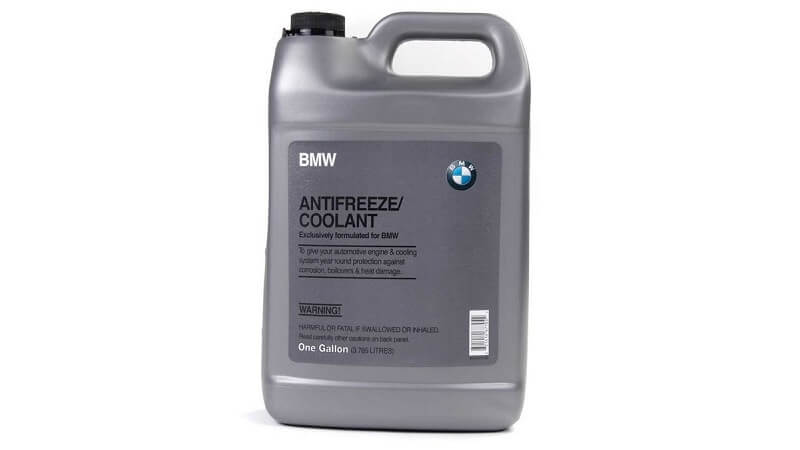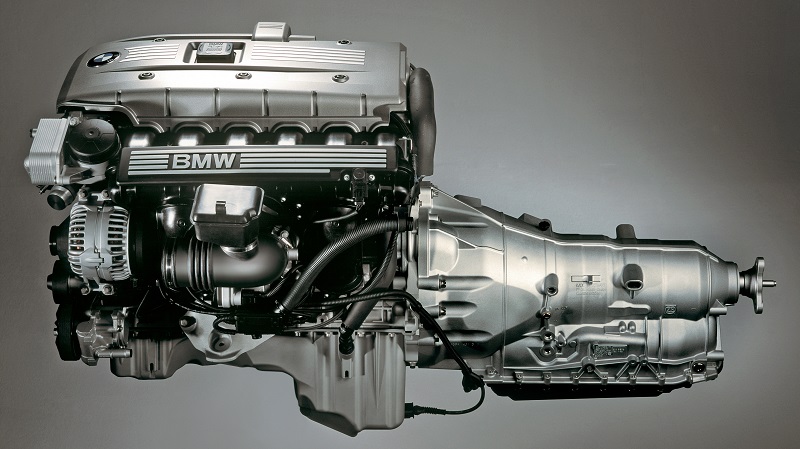An ignition coil is a small yet fundamental part of modern-day engines. Without one, your car would misfire and lose power and, if not addressed soon, could lead to more complex problems. Since the early 2000s, the technology behind a BMW ignition coil has remained essentially unchanged. However, the Bavarian giant has sourced the part from different suppliers, and if you’re looking to buy a replacement, there’s more than just one option to choose from. Like most decisions involving multiple choices, deciding on which ignition coil to go with can be downright frustrating.
To save you the time you’ll spend on research and finding the best set that’s right for you, we’ve put together the only guide you’ll ever need when it comes to Bimmer ignition coils.

What is an Ignition Coil?
For the uninitiated, here’s a quick breakdown of what an ignition coil does and how it plays such an essential role in the normal functioning of an engine.
The air-fuel mixture in a gasoline engine is ignited with the help of a spark plug. However, car batteries only produce between 12.6 to 14.4 volts which are well below the voltage required to create a spark; a spark plug needs anywhere between 12,000 to 45,000 volts to work correctly. This is where an ignition coil comes in. It uses the relationships between electricity and magnetism to amplify the battery current to levels required by the spark plug.
As you can imagine, without it, a spark plug simply wouldn’t be able to function. Today’s cars have one ignition coil for each cylinder, either connected directly to the spark plug or placed nearby with a high voltage wire connecting it to the spark plug.
What Are The Different Types of Ignition Coils?
Ignition coils have been around for decades now, but they’ve changed a lot in how they work since they were first used on cars. Some more popular types of coils are conventional coils, electronic ignition coils, distributor-less (DIS) ignition coils, and coil-on-plug (COP) ignition coils. Most modern-day cars come equipped with COP systems like we mentioned above. In other words, an individual ignition coil is placed atop each spark plug.
This shift in technology came towards the later 90s and was broadly incorporated into cars at the turn of the millennium. In a coil-on-plug (COP) arrangement, the engine computer controls the spark management. For the most part, they’ve turned out to be a pretty efficient tech as they eliminate plug wires and the mechanical drag caused by older cam-driven distributor shafts.

BMW vs. OEM Ignition Coils
Now that we’ve familiarized ourselves with the technology behind them let’s address something else we get asked a lot and have noticed on several Bimmer forums: What’s the difference between a BMW ignition coil and an OEM unit?
The simple answer is not much. When you buy an ignition coil, or any part for that matter, from BMW, you’re getting what is referred to as OE parts, or ‘Original Equipment. These are the exact parts used in the factory that manufactures your car. They are typically manufactured by a company (such as Bosch) that specializes in the particular part and are branded with a company’s logo — in this case, BMW.
On the other hand, an OEM or ‘Original Equipment Manufacturer’ part is made by the same specialist company and sold externally, without BMW branding.
Essentially, an OE part is identical to the OEM part barring the manufacturer branding that you’ll find on the former. However, more often than not, OE parts tend to cost notably more than their OEM counterparts, mainly owing to the brand value, the extra inspection they have to pass, and the extended warranties most of these parts offer.
So, when it comes down to deciding between the two, we recommend saving some money and opting for an OEM ignition coil over getting the same product at a marked-up rate from BMW.
OEM Recommendations Over the Years
BMW has switched its ignition coil of choice multiple times since 2003 – a year before the N52, the motor found in the BMW E90 and many other models, made its debut internationally. What we’ve noticed over the past is that a slightly revised version of an ignition coil is initially fitted to a specific model; if it performs better than the older part, it eventually replaces it across the product line. These revisions may be minor, but they are documented as new parts, and this is why there are multiple part numbers for what might come across as the same ignition coil at first glance.
The first BMW ignition coils from around 2003 were courtesy of Bosch, and a large majority of BMWs that you see on the road today are likely to have them under the hood. The partnership with Bosch lasted for a good eight years, after which the German manufacturer switched to using Delphi coils.
As BMW cars got more powerful, the need for an ignition coil that could handle the added performance increased. So, in late 2015, the Delphi coils were swapped out in place of ones from Eldor, and if you buy a BMW today, it will come equipped with these.
What’s worth noting is that all of these ignition coils are compatible with your car, and each of them, though serving a similar purpose, have their own share of positives and negatives.
Which Ignition Coil Should You Choose for Your BMW?
There are multiple brands of ignition coils out there that will fit your BMW. Some Chinese manufacturers also offer some impressively extended warranties, but we recommend that you stick to OEM recommended parts from Bosch, Delphi, or Eldor.
Bosch ignition coils are, undoubtedly, the most common ones. This comes as no surprise considering that they were the Bavarian giants’ factory-fitted part for the longest time. However, owners did experience a relatively high failure rate with some of the earlier examples. To rectify this, the company redesigned the coil around 2015 to prolong life and durability, and the newer version of the coils is a lot more reliable. For someone looking for a trusted ignition coil kit, the Bosch ones are a stellar choice. The Bosch 0221504800 and Bosch 0221504470 are two of the part numbers for ignition coils compatible with BMWs from 2003 to today.
The only instance where the Bosch ignitions coils may let you down is if you’re planning on heavily tuning your engine. On cars with extensive modifications to their engine, some owners have found that Bosch ignition coils struggle to keep up and sometimes misfire. The Delphi and Eldor ones have proven to work better in this regard, but as far as regular daily driver cars that aren’t pushing 500whp on the dyno go, you’ll be hard-pressed to tell the difference.
We also want to point out that there’s a common notion that the weight of an ignition coil is directly proportional to its quality. While there’s no statistical backing to this, the extra weight could result from more primary and secondary coil winding inside. We found that the Eldor coil is the heaviest amongst the three and comes across as the most well-put-together. The Delphi weighs a few grams less, while the Bosch is lighter still. However, the Delphi and Eldor units come with a metal wrapping around the body, contributing to the weight.
Bosch Ignition Coils — Old vs. New
As we mentioned above, Bosch made some notable changes to the design of its ignition coil in 2015. One of the most significant changes from this was that Bosch decided to replace the old snap-and-clip mechanism on connection to the spark plug. Instead, the newer coils use a spring that rests against the tapered edge of the spark plug terminal. This caused quite the stir in the community, and even technicians were left wondering if the connection was proper since there was no ‘snap’ like with the older coils.
Bosch issued a statement mentioning that the ignition coil is securely held in place, regardless of the snap, in two areas — by the rubber boot that slips over the spark plug and the sealing lips at the top of the coil. The company also replaced the coil’s metallic housing with a plastic one, and, overall, the ignition coil is a few millimeters more compact and tightly packed than the older version.
When Should You Replace an Ignition Coil?
There’s no fixed mileage on when you should replace your ignition coils. BMW ignition coils are designed to last over 100,000 miles but don’t be surprised if one (or more) of them fails after just 40,000-60,000 miles. If you’ve made performance-oriented changes to the engine, you can expect even less mileage.
What Causes Ignition Coils to Fail?

The ignition coils sit very close to the engine and thus are subject to high levels of heat and vibration. They’re engineered to perform in these conditions, but multiple heat cycles over extended periods are bound to cause failure in anything mechanical, and ignition coils are no exception.
Ignition coils can also fail if exposed to uncommon amounts of moisture. This can result in problems with the connector pin, reducing its efficiency.
What Are the Signs of a Failing Ignition Coil?
Luckily, a failing or failed ignition coil will make its presence known rather quickly, so you can swap it out as soon as possible. Some of the most common symptoms include backfiring, a loss of power, and stalling.
That said, keep in mind that these symptoms can be caused by other mechanical or electrical complications as well, and there may not always be an ignition coil at the root of your troubles. We’ve also put together a more detailed breakdown of how to check the health of your BMW ignition coils.
Backfires or misfires
A backfire is when fuel that isn’t burnt inside the combustion chamber ignites from the heat of the exhaust. Fuel that burns outside the engine is wasted fuel, and given how efficient today’s engines are, this is very uncommon.
On the other hand, a misfire occurs when one or more cylinders in the engine are not producing power. This is a tell-tale sign that there’s something wrong with the ignition coil or the spark plug, as it means that the fuel mixture in that particular cylinder is not being combusted.
Check Engine Light
Today’s BMWs are pretty smart, and if there’s something wrong with the engine, the check engine light on your dashboard will likely light up. In most cases, the check engine light will be accompanied by an error code that you can use to pinpoint whether the cause of the problem is the ignition coil or something else.
Starting Troubles and Engine Stalling
If an ignition coil is faulty, it can’t help the spark plug produce the thousands of volts required to initiate a charge. When this is the case, an engine will have trouble starting.
Similarly, an engine requires a steady supply of voltage to run. If the ignition coils can’t keep up, the affected cylinders stop producing power and consequently can cause the engine to stall.
Should You Replace All the Ignition Coils If One Fails?
The short answer to this is that, more often than not, it’s best to replace all the ignition coils at once — even if only one of them is causing you trouble.
If one of your ignition coils has failed, there’s a high probability that the other ones will follow suit soon enough. This is because they’re all subject to the same working conditions, and it’s unlikely that one of them will wear out sooner. So, to save yourself the time and labor involved with going back to replace each coil, one after the other, we recommend replacing all of them when one fails. You can often save some money by getting an ignition coil kit for your Bimmer.
If, for some reason, you decided to replace only the affected coil, steer away from using a different one than the ones that are already in the car. Mixing ignition coils among different versions may cause trouble. If you’re replacing just one, get your hands on the exact same version.
Buy Quality Ignition Coils
At the end of the day, as long as you stick to Bosch, Eldor, or Delphi, your Bimmer will be fine. Any of these brands will get you the performance you need and ensure the long-term reliability of your engine.
To find ignition coils from these manufacturers that match your car, head over to our store and select your Bimmer using our car selection tool. Then, simply head over to the ignition section of the results and you’ll find what you’re looking for.







